- seatac@wildlifeanimalcontrol.com
Call 24/7 for a free quote:
425-947-5348
SeaTac Wildlife Animal Control
Professional Wildlife Removal Company Servicing SeaTac, WA
If you have a problem with wildlife in your SeaTac home, your best option is to hire a company that specializes in Washington wildlife removal only. This is a specialty business, and regular pest control companies do not use the proper techniques to solve animal problems. I have spent many years reviewing Washington and SeaTac, and I recommend the following:
Pest Animal Removal Seattle
Cell Phone: 425-947-5348
NOTE: If you have a dog or cat problem, call King County Animal Services: 206-386-7387

Pest Animal Removal Seattle specializes primarily in removing animals from attics of homes and buildings - this includes squirrels in attics, raccoons, and rats or mice in homes. Washington also has a documented problem with
bats in buildings, and Pest Animal Removal Seattle is specially trained in bat removal. They also perform general wildlife trapping services, such as the capture and removal of skunks or opossums on the
property. Call 425-947-5348 to discuss your critter problem and schedule a same-day or next-day appointment. Click here to learn more about what prices we charge in 2023.
When hiring a company to solve your wild animal problem, you want these features:
- Specializes in wildlife removal, not pest control
- Fully Washington and King County licensed and insured
- Works 7 days per week (critters don't take weekends off)
- Performs full building inspections: enters and inspects attic
- Performs exclusion repairs, with guarantee against animal re-entry
- Offers cleanup of biohazardous wildlife waste
Pest Animal Removal Seattle is a full-service SeaTac wildlife removal company. This is very different from a regular SeaTac pest control company. The pest control companies spray poison to kill insects. This is not at all
similar to wildlife removal. Pest Animal Removal Seattle performs a full inspection of the home or property, and determines why the animal(s) are there, and if inside a building, how the animals got inside. All
animals (including rodents) are trapped and removed, or if possible, removed from the building using special exclusion devices. Once the animals are gone, preventative repairs are essential, and
cleanup is sometimes recommended.
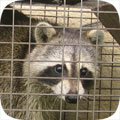 SeaTac wildlife trapping - it's not as simple as it may seem. It's illegal in Washington to trap without a license. Trap type is very important and there are many different types, bait is somewhat relevant, trap placement
is vital, and there are dozens of small things that are very important to know.
Safety is a concern. Then once the animal is trapped, it must be removed and dealt with in the proper manner according to Washington law. We offer SeaTac raccoon removal. Read more about how to get rid of raccoons.
SeaTac wildlife trapping - it's not as simple as it may seem. It's illegal in Washington to trap without a license. Trap type is very important and there are many different types, bait is somewhat relevant, trap placement
is vital, and there are dozens of small things that are very important to know.
Safety is a concern. Then once the animal is trapped, it must be removed and dealt with in the proper manner according to Washington law. We offer SeaTac raccoon removal. Read more about how to get rid of raccoons.
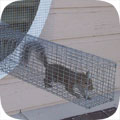 Animals in attics - this is our specialty at Pest Animal Removal Seattle. Many types of animals like to live in attics. This includes squirrels, raccoons, rats, mice, bats, birds, and even possums. Critters like to go into attics for a safe place to live
and raise their young. Removing animals from attics is very complex work, partly because of the presence of baby animals. If you need SeaTac squirrel removal, we can remove all the squirrels from your attic, and seal out any future ones. Read more about how to get rid of squirrels.
Animals in attics - this is our specialty at Pest Animal Removal Seattle. Many types of animals like to live in attics. This includes squirrels, raccoons, rats, mice, bats, birds, and even possums. Critters like to go into attics for a safe place to live
and raise their young. Removing animals from attics is very complex work, partly because of the presence of baby animals. If you need SeaTac squirrel removal, we can remove all the squirrels from your attic, and seal out any future ones. Read more about how to get rid of squirrels.
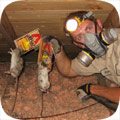 Rodent control must be done in a very specific way. First off, the most important thing is that all the openings that rats and mice can use to enter a house be sealed. Then all the rodents must be physically trapped and removed.
Never, ever use poison! Most SeaTac exterminators will just use this lazy poison technique to kill rodents, and it causes more harm than good - dead stinky rats, and it doesn't solve the problem. Call us for correct SeaTac rat removal. Read more about how to get rid of rats.
Rodent control must be done in a very specific way. First off, the most important thing is that all the openings that rats and mice can use to enter a house be sealed. Then all the rodents must be physically trapped and removed.
Never, ever use poison! Most SeaTac exterminators will just use this lazy poison technique to kill rodents, and it causes more harm than good - dead stinky rats, and it doesn't solve the problem. Call us for correct SeaTac rat removal. Read more about how to get rid of rats.
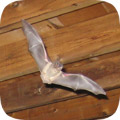 Bat removal is a highly specialized task. Washington is known to have colonizing bats who often live in buildings. Bats love attics. If not removed, the colony can grow to a very large size over the years. The bat droppings are often corrosive and
cause health risks. The same goes for bird droppings on or in buildings. We perform SeaTac pigeon removal and bird control. But our specialty is SeaTac bat removal. We remove 100% of the bat colony and seal the building so that it's totally bat-proof. Read more about how to get rid of bats.
Bat removal is a highly specialized task. Washington is known to have colonizing bats who often live in buildings. Bats love attics. If not removed, the colony can grow to a very large size over the years. The bat droppings are often corrosive and
cause health risks. The same goes for bird droppings on or in buildings. We perform SeaTac pigeon removal and bird control. But our specialty is SeaTac bat removal. We remove 100% of the bat colony and seal the building so that it's totally bat-proof. Read more about how to get rid of bats.
 If you have animals inside a house, no job is complete without proper exclusion repairs. If you simply hire a SeaTac trapper who only removes the critters, then the problem will return. You need to hire a SeaTac wildlife control company that identifies 100% of the animal entry points
into your building, and seals them shut with professional repairs. In addition, in many cases animals have left waste or contamination behind, and you'll want a company that can provide professional cleaning services. Pest Animal Removal Seattle does both.
If you have animals inside a house, no job is complete without proper exclusion repairs. If you simply hire a SeaTac trapper who only removes the critters, then the problem will return. You need to hire a SeaTac wildlife control company that identifies 100% of the animal entry points
into your building, and seals them shut with professional repairs. In addition, in many cases animals have left waste or contamination behind, and you'll want a company that can provide professional cleaning services. Pest Animal Removal Seattle does both.
The above are just some of the services offered by Pest Animal Removal Seattle. We also trap and remove animals that destroy lawns, such as moles, or digging animals. Sometimes animals like opossums will live under buildings, steal pet food, raid garbage cans, etc.
Read about how to get rid of opossums. Skunks commonly live under sheds or decks, and set up a den. We can trap and remove them without them spraying. Read about how to get rid of skunks. Pest Animal Removal Seattle
also provides dead animal removal in SeaTac. If you need help with any other wildlife conflict, from a fox, beaver, groundhog, or any other critter, we can solve it. We also do SeaTac snake removal - most of the snakes in Washington are not venomous, but
call us if you want safe removal, or read about how to get rid of snakes in SeaTac. And remember, we are a private business, not King County Animal Control Services, so if you have a dog or cat problem, call the County at 206-386-7387.
King County animal services does not handle any wildlife issues.
Pest Animal Removal Seattle: 425-947-5348
SeaTac Pricing Info For Year 2023
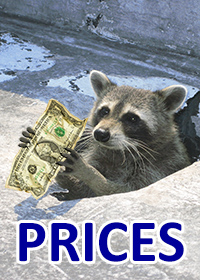 Every wildlife removal situation is different, from the species of animals involved, the location of the animal inside a house or outside, the extent of repairs or cleanup, etc. It's impossible to give one-size-fits-all prices. Examples MIGHT include:
Every wildlife removal situation is different, from the species of animals involved, the location of the animal inside a house or outside, the extent of repairs or cleanup, etc. It's impossible to give one-size-fits-all prices. Examples MIGHT include:
Small Job: For example, a one-stop job to remove an animal in the yard: $100 on up
Medium Job: For example, getting critters out of your house with minor repairs: $300 on up
Large Job: For example, a project involving many service trips and complex work: $500 on up
Give us a phone call now and tell us about your wildlife issue and we will be able to give you a price estimate over the phone. If you're cool with it, we can schedule a same-day or next-day appointment if you like. Our prices are fair, and a good value because we do the job right, the first time.
SeaTac Wildlife Tip #1:
What is a skunk's natural diet?
Skunks are the foul smelling animals which can actually conquer your home with their unpleasant odour and make it difficult for you to even breathe! The only good part about skunks (they are good in appearance but their foul smell dominates everything) is that they are non-aggressive and mild-mannered. If skunks would have been free from smell then they could have joined the category of pets as well. But let's just keep all illusions aside for once and focus on what all skunks can do on your property. They can ruin your lawns, make their den in your attic or basement, and spread foul smell which can also cause temporary blindness. This post is to guide you about the natural diet of the skunk. This is because skunks take a shelter only at those places where they are able to find food for sustenance.
Skunks are omnivores and nocturnal animals; hence they come out for their hunting only at night. Insects, worms, rodents, grubs, beetles and garbage are what they target when they step out for food. But their diet keeps on changing with the season. Below are various categories which together make up a meal for skunks!
1. In spring season they would like to have grass, fruits, berries, leaves, buds and grains too! The moist soil in the lawn area attracts them for earthworms, beetles, cutworms and other soil insects. Eighty per cent of skunk's diet is made up of fruits, vegetables and plant matter only!
2. They also like nuts, seeds, strawberries, blueberries, soybean etc. as these provide them with proteins and fats for their glowing and soft fur. These foods have high moisture content and fat which is required to maintain their energy level.
3. Skunks are known as opportunistic feeders and thus they can feed on garbage to find insects and other trashed remains of fruits and vegetables too.
4. Crisp bacon, larvae of fresh insects, canned fish, cat food and bread with peanut butter are some of the foods which are used as bait for trapping skunks.
5. The processed food for pets is also something which is liked by skunks. But they don't like those which are processed and contain sugar.
6. Lizards, frogs, rodents, mice and small birds are some of the animals which are hunted by skunks. Skunks also eat up the poultry eggs or the eggs lay down by animals. They also feed on the carcasses that are left over by other animals.
Skunks can actually damage your lawn in hunt of insects and green grass. So if you don't want your lawn to be a buffet for skunks then go for insect control on your lawn. This will help in controlling grubs which are the primary food on which skunks feed upon! You can also use some of the repellents containing castor oil as the smell of oil masks the sweet smell of treats below the surface. If nothing is working out, call out for professional help and they can help you in getting rid of skunks from your premises.
SeaTac Wildlife Tip #2:
Washington Wildlife Information:
Washington State bird: Willow goldfinch
State mammal: Olympic marmot, orca
State amphibian: Pacific tree frog
State fish: Steelhead trout
State insect: Green darner dragonfly
Washington State is one of the lesser-publicized states in the country, largely because it is out of the path of many natural disasters like tornados, hurricanes, and powerful 'Nor-Easter' storms. The state has a stunning sea on its upper western corner. This sea is named the Salish Sea, and it is an inlet of the Pacific Ocean filled with hundreds of islands and deep bays. There are over 100 animal species that rely on the sea for food and shelter. Beyond the sea, heading inland, the state is divided north to south by the Cascade Mountains. This is only one of several large mountain ranges in Washington. On the western side of the divide, the weather is typically mild with cooler, wet winters. The eastern side of the divide is very opposite. There are dry areas that are considered deserts, and a large semi-arid region on the west side is used primarily for agriculture.
The mountains in Washington are home to many large and small animals. The largest of these is the moose, which is rivaled only by grizzly bear in weight. Grizzlies are uncommon in the state, spotted only in the deepest parts of the Cascades. Their more common cousin, the black bear, is found in most of the region, and can be troublesome for people trying to keep birdfeeders up. The next creatures down the size chain are elk, cougars, and coyotes. Elk are herd animals, and they typically remain at the tops of mountains until winter snows drive them in to the valleys.
It is not the large animals that are problems in the state of Washington. This state did not escape the attention of pest critters like raccoons, skunks, woodchucks, pocket gophers, bats and opossums. Anyone living close to the forested areas of the state will see these opportunistic animals, and they will undoubtedly see a fair share of squirrels, rats, and mice, too.
The Salish Sea hosts just as many critters as do the mountains. In the sea, otters, whales, sea lions, seals, and blue heron are frequent visitors. Homeowners looking to live along the coast will eventually be exposed to the many land animals, like black bear, that come to enjoy the wealth of wildlife at the water's edge.
You can always call Pest Animal Removal Seattle, any time of day, at 425-947-5348, for a price quote for SeaTac wildlife control services. I am confident that this is the best choice amongst wildlife removal companies in SeaTac, WA.





































